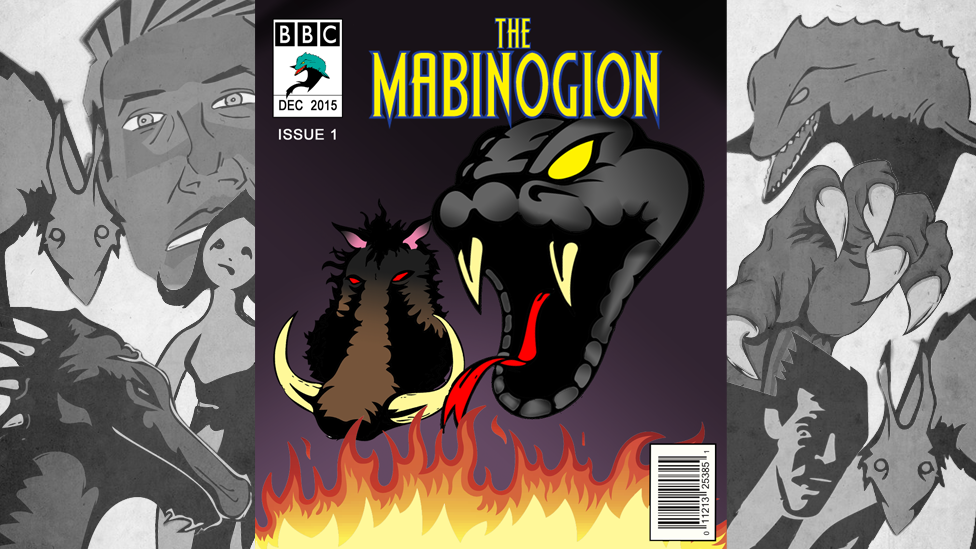Scientists search for life on 'lost land' under Irish Sea
- Published
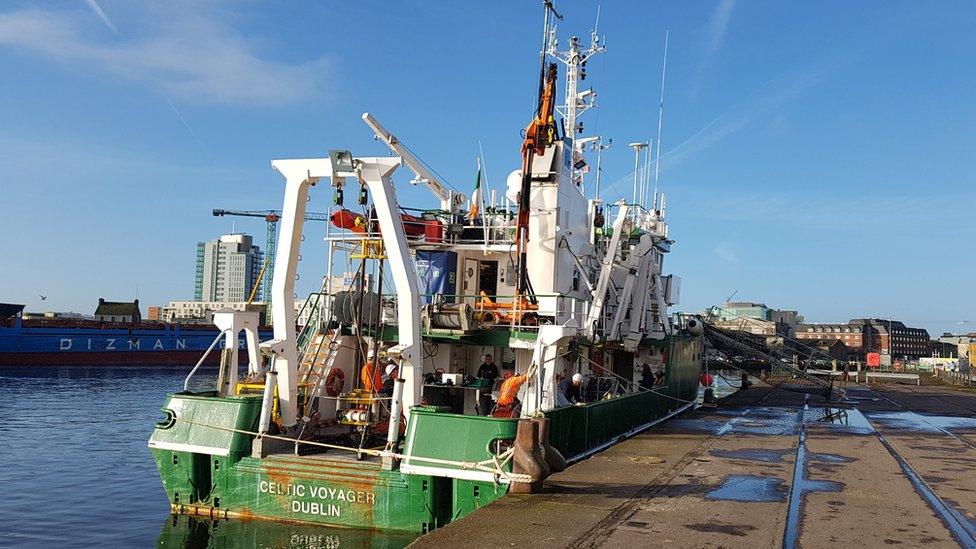
The project vessel is called Celtic Voyager
A scientist from the University of Wales Trinity Saint David is part of a team aiming to solve one of the oldest mysteries in Welsh history.
Geoarchaeologist Dr Martin Bates is helping to discover whether there is a "lost land" under the Irish Sea.
Oral traditions of "lost kingdoms" in Welsh mythology date back to the 6th Century.
The team is taking sediment samples from 20 sites on the seabed between Cardigan Bay and Liverpool.
If there was any human life at all on any land it would have been deluged under the water from melting glaciers 18,000 years ago.
Dr Bates, based at the university's campus in Lampeter, Ceredigion, said: "This is a very exciting opportunity as the cores we are collecting are the first drilled in the Cardigan Bay sea bed since perhaps the 1970s.
"They are going to provide us with material that will really help us to understand how Cardigan Bay changed as the sea flooded across the landscape during the time that people were coming back to Wales after the last glaciations."
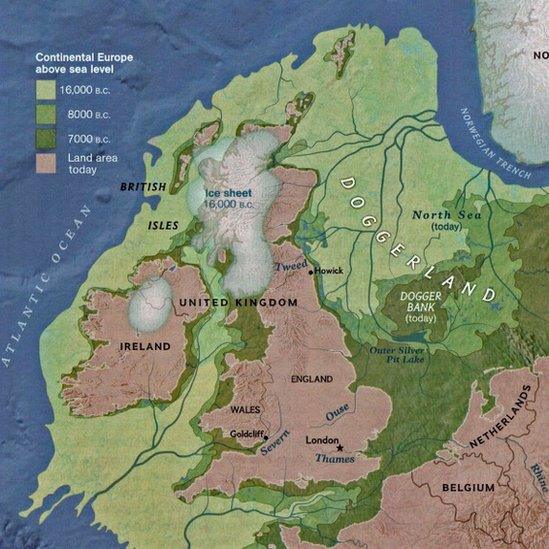
A map showing land around Britain and how it has been lost to the sea over the millennia
"Europe's Lost Frontiers, external" is a collaboration between UWTSD, the University of Bradford, the Institute of Technology Sligo, University College Cork and the Irish Marine Institute.
The team has already detected a prehistoric "palaeolandscape" of plains, hills, marshlands and river valleys beneath the waves of the Irish Sea, and they hope this expedition will unearth preserved evidence of human activity.
The first written account of a mythical lost land known as Cantre'r Gwaelod comes from the 13th Century Black Book of Carmarthen, in which the blame for the flood is placed on a well-maiden named Mererid allowing her well to overflow.
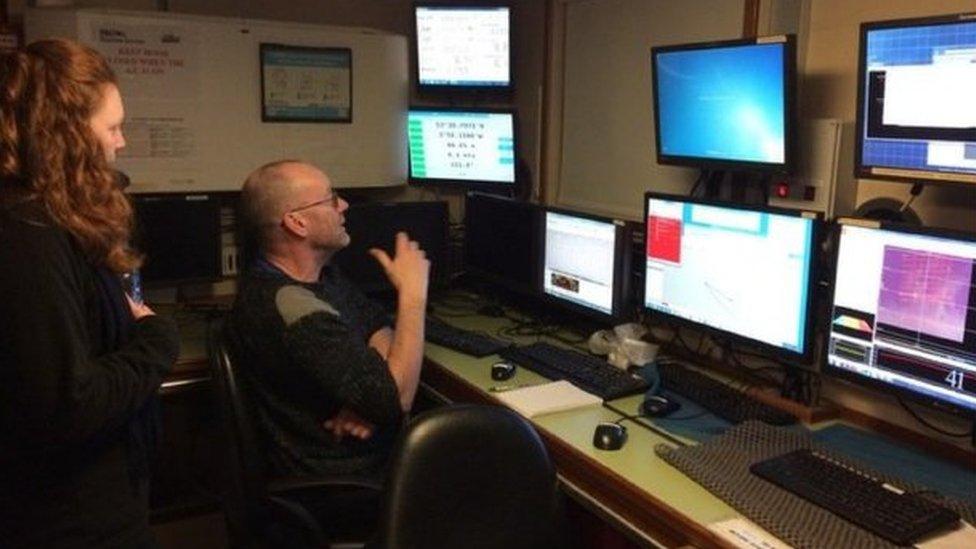
The research team monitor a bank of screens on board their vessel
The team will be creating a virtual reconstruction of the lost lands from the data they gather, whilst ancient plant, animal, and, hopefully, human DNA taken from the drilled samples will be analysed at the University of Warwick.
It is hoped they can give a better understanding of how life adapted to a post-Ice Age world.
- Published30 July 2017
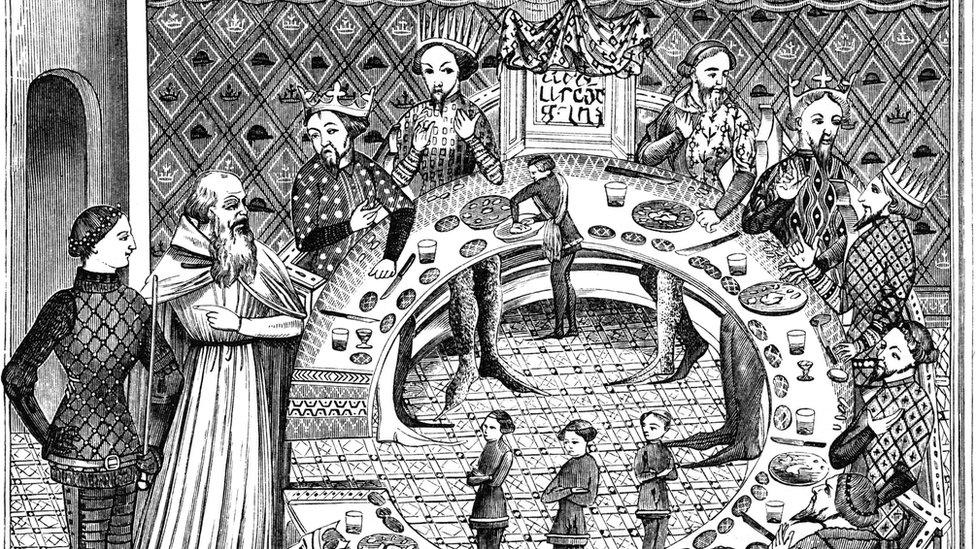
- Published28 November 2014
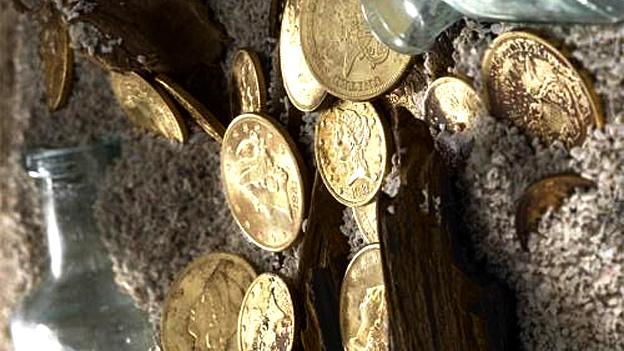
- Published14 January 2017
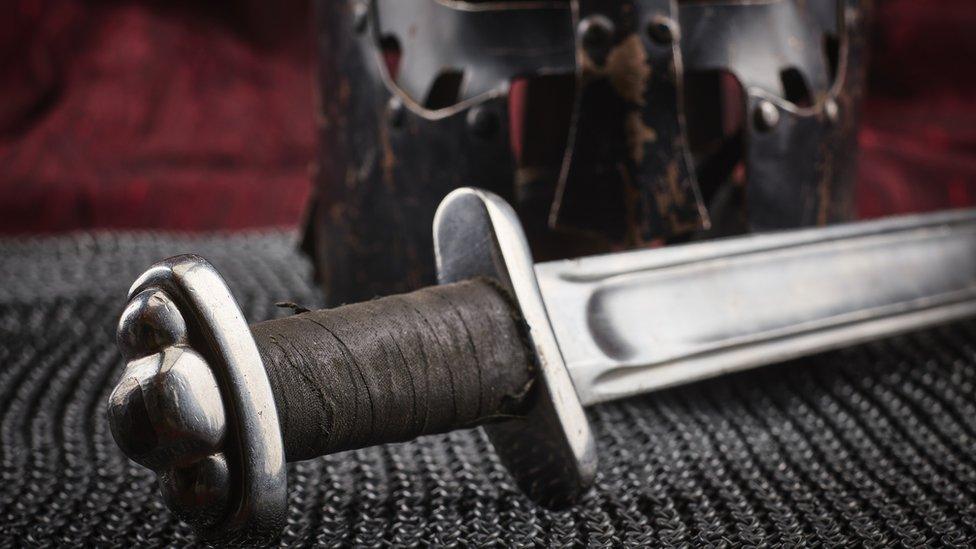
- Published29 December 2015
